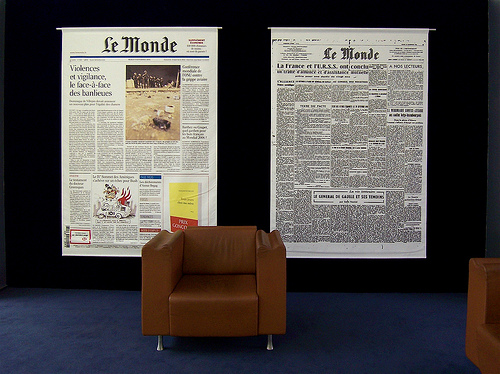As the EJO celebrates its 10th anniversary, founder Stephan Russ-Mohl looks back at its founding principles.
It is kind of a miracle: The European Journalism Observatory (EJO) has not only survived for the first ten years, it is also growing up and by now serving journalists in ten different European languages – and anyone else interested in reading about the rapidly changing media landscapes. The concept behind the project is simple: every year, taxpayers money is spent on journalism and media research, but the research results are not made accessible to those who might make the best use of them. The results of the research need to be condensed and translated if journalists and media managers are to benefit from them.
There is also little doubt that media experts and media researchers know very little about the journalism cultures and media systems in other European countries; there are very few ways to learn about practices in other countries or to create a common European standard of professionalism. The EJO breaks down cultural barriers, providing news and in-depth analysis about media research, about trends and best practices in journalism – in the very language the target groups speak best, in their mother tongue.
The initial financial support came from the Fondazione Corriere del Ticino (for the Italian and English websites) and from a German foundation, the Stiftung Pressehaus NRZ (for the German and Polish websites). In 2011, the Swiss National Science Foundation started to fund six Eastern European versions. The Swiss EJO operations in Lugano and, since 2013, the Zürcher Hochschule for Applied Sciences in Winterthur, also receive some support from SNF. In 2013, the prestigious Reuters Institute for the Study of Journalism at Oxford University became the new strategic partner of EJO, funded by the Robert Bosch Foundation in Germany.
Locally, the sustainable generous support from the Fondazione Corriere del Ticino has created a unique partnership between the university and the largest private media company in Ticino. Both sides can be proud of it. Students benefit from several editors in chief and other journalists teaching at the university and providing “real life” experiences and case studies, while the students offer (at least occasionally) fresh insights, and new talent for the media companies. The EJO itself provides workplaces for student assistants as well as doctoral students who gain a unique experience – part trainee researcher and part journalist. Even Marcello Foa, the CEO of Timedia and Corriere del Ticino has an EJO background: he was one of the two founders of the “Observatory”, seven years before he became the top manager of the media company in Ticino. He has stayed involved, contributing to EJO’s success and participating at its meetings. Actually, he says: “Without the EJO experience, I might not have been fit for the challenge of switching from a top editor’s position in Italy to the top management position of Timedia.”
Photo credit: Philip Di Salvo
Tags: anniversary, CDT, EJO, European Journalism Observatory, Fondazione Corriere del Ticino, NRZ, Oxford University, Reuters, Reuters Institute, snf, Stiftung Pressehaus, Swiss National Science Foundation, ten years, Timedia, Zürcher Hochschule in Winterthur













































